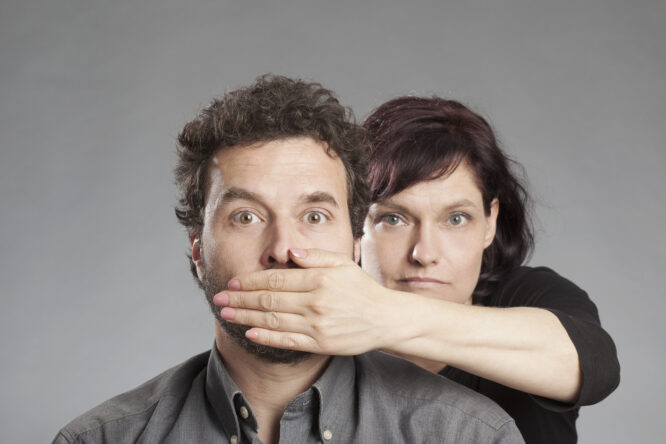Sometimes people say things without realising how they affect the people around them.

While most don’t mean harm, certain comments can carry weight and hurt that goes deeper than the surface. It’s important to be respectful of different cultures and ways of life — just because they differ from your own doesn’t make them strange or wrong. Anyone who understands this would never say these culturally insensitive things, so don’t you!
1. “You speak English so well.”

This might sound like a compliment, but it often assumes English isn’t someone’s first language just because of how they look. Many people grow up speaking English or are fluent in multiple languages, so acting surprised they’re fluent implies they somehow wouldn’t be. It’s better to skip the assumption altogether.
2. “Where are you really from?”

After someone’s already told you where they’re from, asking again suggests they don’t quite “fit” in that place. It can make someone feel as though they need to explain or justify their background just because they don’t match a certain stereotype. It’s fine to be curious, but there are more thoughtful ways to learn about someone’s background.
3. “But you don’t look like you’re from there.”

Comments like this rely on outdated ideas about how people from certain regions “should” look. The world is diverse, with people moving and mixing across borders for centuries, so identities are more varied than they might seem. This kind of remark just shows a narrow view of culture.
4. “Your name is too hard to pronounce.”

Dismissing someone’s name because it seems challenging shows a lack of effort. Names often carry deep personal and cultural significance, so making an effort to learn them shows respect. If you’re unsure, it’s always better to ask politely for help with pronunciation.
5. “I don’t see colour.”

This phrase usually aims to come across as open-minded, but actually dismisses the very real ways race impacts people’s lives. Claiming not to “see” differences can erase important parts of someone’s identity. Real inclusivity means acknowledging differences and valuing them.
6. “You’re not like other people from your background.”

While this might sound like a compliment, it’s rooted in a stereotype about their background that they’re somehow “breaking away” from. It implies their background has negative traits they’ve managed to “rise above.” A better approach? Appreciate someone without comparing them to anyone else.
7. “My friend is also from your culture.”

Mentioning a friend from the same culture can make it seem like you view entire backgrounds as interchangeable. Even if you mean well, people’s experiences vary widely, and assuming they’ll relate based on one shared cultural detail simplifies a much more complex picture.
8. “That’s exotic.”

Calling something “exotic” treats everyday aspects of someone’s culture as a novelty or curiosity, often with an undertone of otherness. Instead, consider expressing genuine interest without making it sound like it’s from another planet—phrases like “exotic” can make people feel like outsiders in their own space.
9. “Can you teach me how to say something in your language?”
 Source: Unsplash
Source: Unsplash This might come across as playful curiosity, but asking someone to act as an impromptu language teacher, especially if you barely know them, can feel reductive. Language is deeply personal, and people aren’t here to perform or represent their culture on command.
10. “People from there are always good at [insert skill].”
 Source: Unsplash
Source: Unsplash Even “positive” stereotypes box people in. Saying things like, “People from there are all great at this” places pressure on someone to fit a mould. It’s better to appreciate individual talents rather than make assumptions based on cultural background.
11. “My ancestors had it tough too.”
 Source: Unsplash
Source: Unsplash When people are discussing experiences of historical or ongoing challenges, responding with “Well, my ancestors also struggled” can come off as dismissive. It shifts the focus away from present struggles and often derails conversations about real issues that deserve attention now.
12. “You’re so lucky to be in this country.”
 Source: Unsplash
Source: Unsplash Saying this assumes everyone shares the same perspective on what “luck” looks like, or that one place is objectively better. People have a variety of reasons for where they live, and often it’s a complex story, not a simple matter of “luck.”
13. “Isn’t that cultural appropriation?”
 Source: Unsplash
Source: Unsplash While cultural appropriation is a valid topic, tossing it around casually or using it as a gotcha moment can shut down meaningful conversations. Often, it’s more helpful to listen and learn about someone’s culture rather than make sweeping judgements based on assumptions.
14. “You’re so different and unique.”
 Source: Unsplash
Source: Unsplash Highlighting someone’s “uniqueness” based on cultural background often just emphasises their differences, rather than appreciating who they are as a whole person. Comments like this, though sometimes meant as compliments, can end up sounding like you see them more as an interesting novelty than a peer.
15. “That’s not real discrimination.”
 Source: Unsplash
Source: Unsplash Invalidating someone’s experience of prejudice by saying it doesn’t “count” is dismissive and ignorant. Everyone’s experiences are unique, and downplaying someone’s struggle only shows a lack of empathy. The best response? Listen without judgement.
16. “I went there on holiday once.”
 Source: Unsplash
Source: Unsplash Going on holiday somewhere doesn’t equate to understanding the place or its people. Reducing someone’s background to a holiday destination shifts the focus back to your experience instead of showing interest in their life. Instead, ask about their experiences and listen.




